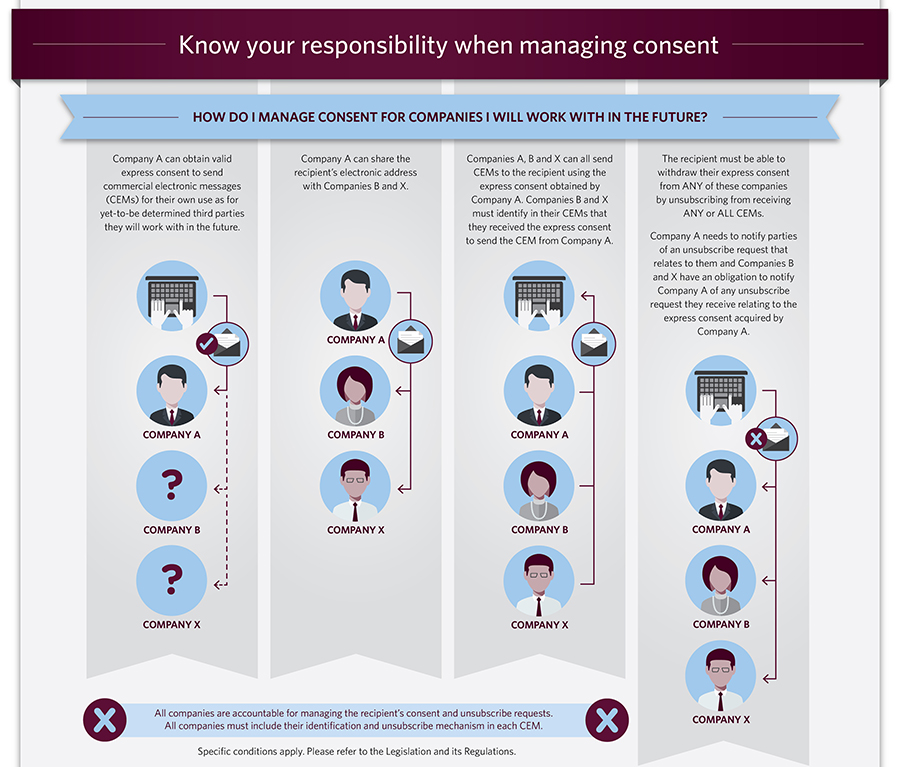
Whew! For a newborn law that hasn’t even had its butt slapped by the doctor, the Canadian Anti Spam Legislation (CASL) is sure stirring up a ruckus in the maternity ward. Just Google ‘spam’ or ‘CASL’ and take a boo at the headlines. Examples include Why has Canada’s New Anti Spam Law Caused Such an Uproar, Canada’s Anti-Spam Law Will Derail Small Businesses, and New Anti-Spam Legislation is ‘a mess’ Says Internet Lawyer. With such rousing support from the media, one cannot help but assume the new CASL is some sort of vicious Golem bent on eradicating our physical plane of existence.
But while people are freaking out about the anti spam law that’s been billed by many as the toughest of its kind, there are questions over just how effective the Canadian Radio-television and Telecommunications Commission (CRTC) will be in enforcing infractions and the stiff penalties that go with them. The agency itself has stated that it will have its hands full when the law goes live July 1, and that leaves us wondering if the whole darned thing truly is much ado about nothing.
The only way anyone will know for sure is when those first fines get levied, but if the upswing in email communications to Canadian consumers by companies not wishing to be in a state of infraction is a good indication that people are taking the law seriously. You see, under the new law, companies need to get express permission from consumers and clients before they can legally spam them.
So with all this foofaraw, it’s not surprising that the CRTC is still playing with the guidelines a week before everything goes live. According to the Financial Post, The CRTC has released guidance for CASL, replete with infographics, to help consumers and businesses understand what their responsibilities are.
As the FP points out, “CASL will have a significant impact on anyone, domestic or foreign, sending commercial electronic messages to recipients in Canada. The heart of the legislation prohibits the sending of CEMs unless the consent of the recipient has been obtained and unless the message meets certain requirements. “ The CRTC page is fairly user-friendly, and covers such topics as a YouTube video entitled How do I know if Canada’s Anti-spam legislation applies to my business or organization?, an infographic called What you need to consider before relying on the personal relationship exemption, as well as information that will help Canadians avoid spam and other electronic threats.
According to the FP, “The Compliance and Enforcement Bulletin emphasizes the importance of a compliance program in establishing a due diligence defence [sic]. The CRTC emphasizes that a compliance program should be tailored to the needs of a particular business. Generally speaking, however, the program should involve senior management, written policies and a risk assessment.” And that’s just a pretty way of saying that companies better get their houses in order lest they find themselves at the butt-end of some heavy fines.
And with the deadline only days away, it becomes clear why so many media outlets are slamming the law. Heck, we’ve been slamming it since it was first announced in 2010, mostly over the Canadian government taking its sweet time enacting the law, its repeated caving to corporations, and the fact that it’s a bit of a miracle that the law is actually going into enforcement. All in all, it’s been a pretty big black eye for the land of the maple leaf, and don’t be surprised if the results aren’t a spectacular win for CASL.
Forgive us for being skeptical, but there’s far too much to criticize and far too little to get excited about. The law is supposed to take spam head-on, but there’s no indication that the law will be the least bit effective against the real spammers. Sure, marketers will have to be on their best behavior, but imagine the Canadian government trying to take on violators in, say, the US, UK, or China. The logistics and costs associated with cross-border enforcement could be astronomical, and we’re not getting a warm fuzzy feeling from the CRTC, whose so forgive us if we’re skeptical.
As CTV News points out, rumors are that “enforcement will be fierce, the CRTC says it simply doesn’t have the manpower to aggressively respond to every complaint.” And internet and privacy lawyer David Fraser say that the law is “’a mess,’ saying it’s ‘onerous, complicated and cumbersome,’ and doesn’t address the realities of today.”
So, to the new CASL, all we have to say is good luck with that and don’t waste your time trying to make a point. Go after the real spammers.
